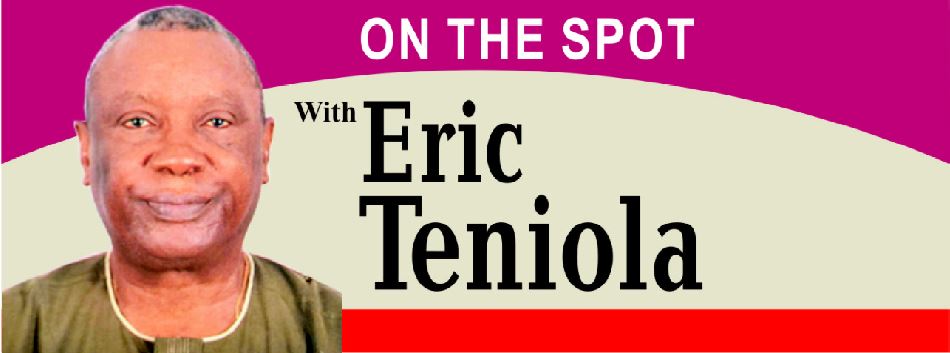By Eric Teniola
The first part of this piece published last week posited that whereas the privatisation programme of 1988/93 provided relief for government in financing public enterprises, it also created unemployment.
THE mandate given to AIhaji Zayyad was just to privatise. Alhaji Zayyad’s committee, later transformed to what we now know as the Bureau of Public Enterprises under General Abdusalam Abubakar.
In 1993, the Technical Committee on Privatization and Commercialisation, TCPC, concluded its assignment and submitted a final report having privatised 88 out of the 111 enterprises listed in the decree. Based on the recommendation of the TCPC, the Federal Military Government promulgated the Bureau for Public Enterprises Act 1993 which repealed the 1988 Act and set up the Bureau for Public Enterprises, BPE, to implement the privatisation programme in Nigeria.
In 1999, the Federal Government enacted the Public Enterprise (Privatization and Commercialization) Act 1999 which created the National Council on Privatisation under the chairmanship of the then Vice President, Alhaji Atiku Abubakar. The pioneer Director General of the Bureau For Public Enterprises was Mallam Nasir El-Rufai. Others who became the Director General include Mrs Nkechi Irene Chigbue, Mr. Benjami Ezra Dikki, Mrs Bolanle Onagoruwa and the present Director General, Dr. Alexander Ayoola Okoh from Edo State, who was appointed on April 13, 2017.
[ALSO READ] Ahead with the AstraZeneca Vaccine
The functions of the council include: Making policies on privatisation and commercialisation, determining the modalities for privatisation and advising the government accordingly, determining the timing of privatisation of particular enterprises, approving the prices for shares and the appointment of privatisation advisers, ensuring that the commercialised public enterprises are managed in accordance with sound commercial principles and prudent financial practices, Interfacing with the public enterprises, together with the supervising ministries, in order to ensure effective monitoring and safeguard of the managerial autonomy of the public enterprises.
The Act also established the Bureau of Public Enterprises, BPE, as the secretariat of the National Council on Privatisation. The functions of the bureau include: Implementing the council’s policy on privatisation and commercialisation, preparing public enterprises approved by the council for privatization and commercialisation, advising council on further public enterprises that may be privatised or commercialised, advising council on capital restructuring needs of the public enterprises to be privatised, ensuring the update of accounts of all commercialised enterprises for financial discipline, making recommendations to the council in the appointment of consultants, advisers, investment bankers, issuing houses, stockbrokers, solicitors, trustees, accountants and other professionals required for the purpose of either privatisation or commercialisation, ensuring the success of the privatisation and commercialisation exercise through effective post transactional performance monitoring and evaluation and Providing secretarial support to the council.
When President Olusegun Obasanjo took over in 1999, the central government owned a total of 590 Public Enterprises, PEs. The government controlled most of the petroleum, minerals, development banking, telecommunications (fixed line), power and steel sectors of the economy. These sectors alone constituted at least 40 per cent of the entire National GDP. It is instructive to note that over one-third of the money the country realized from the sale of oil since 1973 has been expended on PEs.
Estimates of the Vision 2010 Committee indicate that the Federal Government’s investments in public enterprises stood at over US$100 billion in 1996. It was also estimated that about 55 per cent of Nigeria’s external debts with the Paris Club of Creditors were due to funds sourced to establish these public enterprises. However, the return on these investments averaged less than 0.5 percent per annum.
According to the Technical Committee on Privatisation and Commercialisation survey, public enterprises accounted for between 30 and 40 percent of fixed capital investments and nearly 50 percent of normal sector employment. Yet, the PEs engaged in economic activities employing only about 400,000 people.
Data obtained from various government departments and estimates revealed that in 1998, Nigerian PEs enjoyed about N265 billion in transfers, subsidies and waivers, which could have been better invested in the country’s educational, health and other social sectors. Government’s response to these problems in the past was the setting up of one form of public commission and study group or the other on the performance of the public Enterprises.
[ALSO READ] Bandits invade another Kaduna school, kidnap 3 teachers
Their findings usually concluded that the public enterprises were infested with problems such as abuse of monopoly powers, defective capita structures resulting in heavy dependence on the treasury for funding, bureaucratic bottlenecks, mismanagement, corruption and nepotism. Thus, the broad objectives and benefits of Nigeria’s privatisation programme included:
liberalisation of the economy making the private sector “the engine of growth”, others were to: rehabilitate dead or moribund enterprises, promote efficiency and better management, create employment opportunities, reduce corruption and parasite mentality, modernise technology in our industries, strengthen capital markets, dismantle monopolies and remove service arrogance, reduce debt burden and fiscal deficits, resolve massive and perennial pension funding gaps, broaden ownership base and create popular capitalism, generate funds to government for investment in social sectors-education, health, security, etc, promote transparency in corporate governance, attract foreign investment and positive re-imaging and attract back flight capital into Nigeria.
The post Does privatisation serve public interests? (2) appeared first on Vanguard News.

0 Commentaires